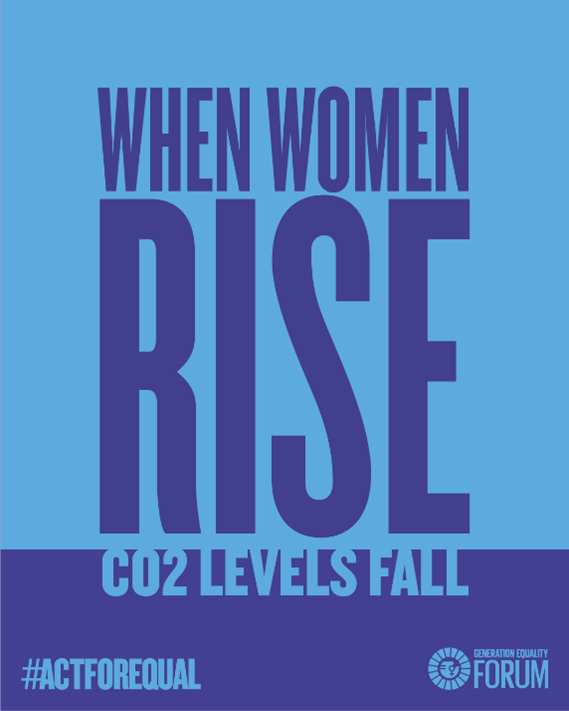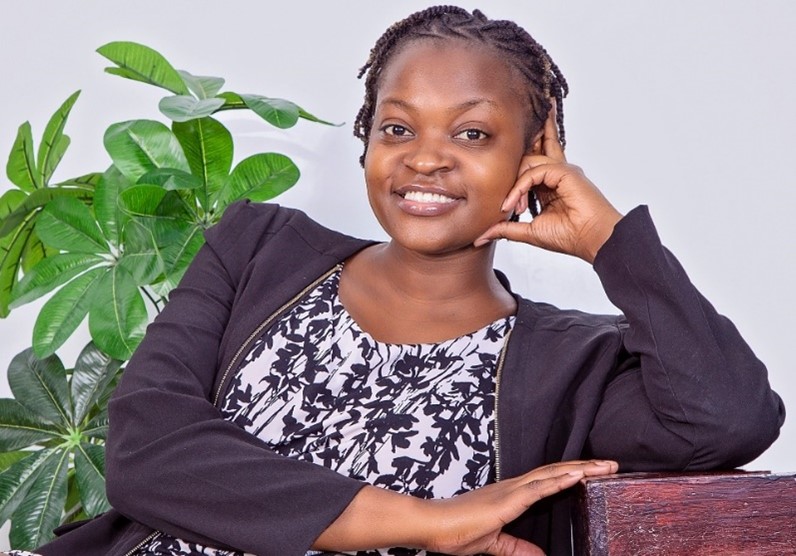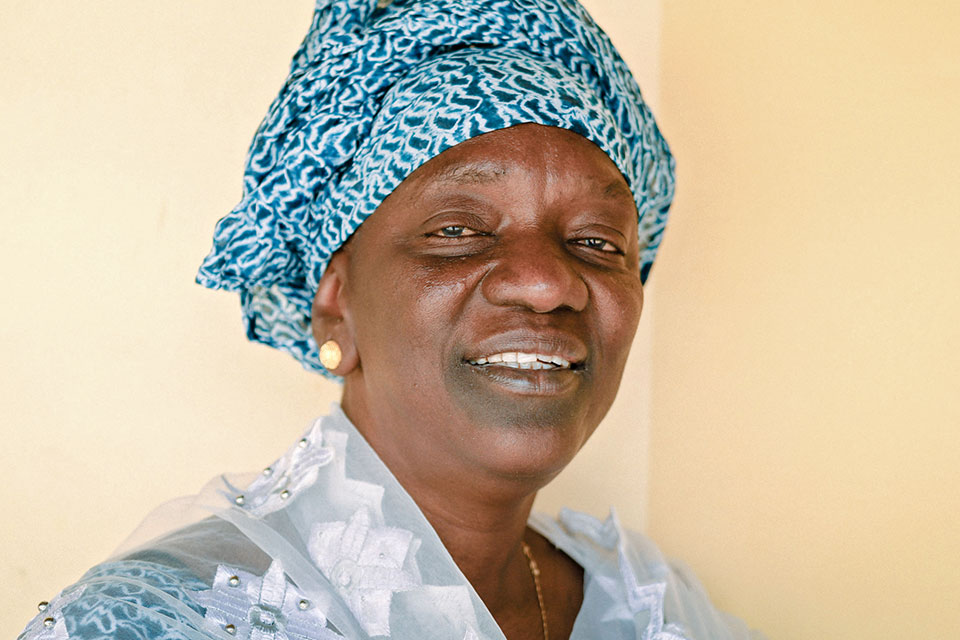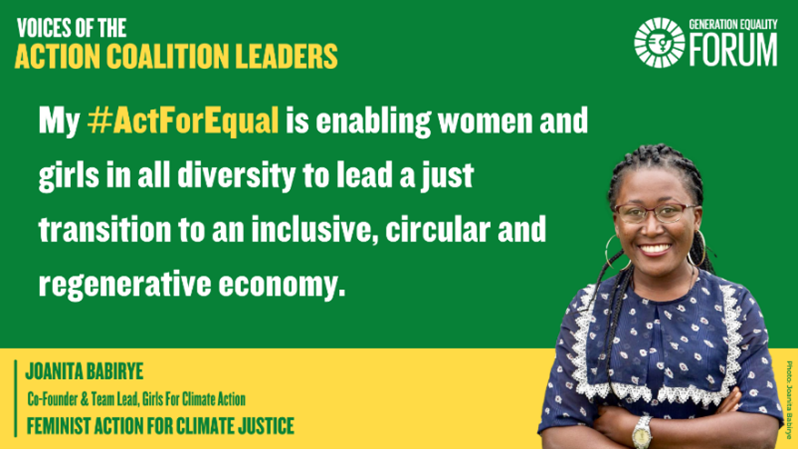
When women rise, CO2 levels fall

Human-caused climate change is predicted to significantly disrupt water and sanitation, increase waterborne diseases, and lead to crowding, urbanization, and displacement. All these impacts will disproportionately affect women and girls. Evidence shows that, when societies treat women equitably and women hold leadership positions, the health of families and communities improves. So it follows that, with climate change, women’s leadership will be key to mitigating its effects.
The Generation Equality Forum, a global gathering for gender equality convened by UN Women and co-hosted by the governments of Mexico and France, partners with youth and civil society to achieve progress towards gender equality. One of its six key themes was Feminist Action on Climate Change. Here are some excerpts from interviews with leaders and activists on gender and climate change, originally posted on the UN Women website.
“Climate change and gender are intertwined because women are disproportionately affected, and more vulnerable to environmental disasters and extreme weather events. In Kenya, women are less economically empowered than men with little access to land and property rights. They are more likely to live in poverty after environmental disasters and displacements. Displacement and migration caused by crises also exposes them to an increased risk of sexual and gender-based violence and psychological torture. It is worth noting that this is not a one shoe fits all scenario. For instance, issues of vulnerability that are faced by urban women are much more linked to issues around pollution, waste and water management, whereas in rural areas, it’s more about agriculture.”
– Wanjuhi Njoroge, climate activist and entrepreneur, Kenya
 Wanjuhi Njoroge has been leading community development projects in Kenya since 2015 and established People Planet Africa in 2020. Photo: Studio 90z Photography”
Wanjuhi Njoroge has been leading community development projects in Kenya since 2015 and established People Planet Africa in 2020. Photo: Studio 90z Photography”
“[Women] are more likely to live in poverty after environmental disasters and displacements.”
“A better understanding of climate change has transformed the way we work and enabled us to put in place appropriate adaptive techniques. If you want to sustainably farm, but you don’t have seeds adapted to climate change, it will not be possible. […] One of the best ways to protect the land is through water drainage. We can’t just use water any old way and waste it. It is important to know how to use the land, so that we don’t negatively impact the environment and the ecosystem. We must protect the environment so it remains clean, without waste or garbage. We have been entrusted with the land, it is important that we take care of it.”
– Korka Diaw, Senegalese farmer and head of REFAN, the Network of Women Farmers in the North of Senegal
 Korka Diaw leads REFAN, a network that empowers women farmers in northern Senegal and fights poverty through agriculture. Photo: UN Women/Yulia Panevina
Korka Diaw leads REFAN, a network that empowers women farmers in northern Senegal and fights poverty through agriculture. Photo: UN Women/Yulia Panevina
“We can’t just use water any old way and waste it.”
“Empowering young women and girls to become climate leaders is an essential part of provoking action. Women and girls should be able to demand climate justice, but this is only possible when they are equipped with the tools and knowledge to hold everyone accountable and to break the barriers that are hindering their access to resources. For me, the transformation needed is to make women and girls fully aware of the issues and leaders of the solutions.
[…] I grew up in a community where women and girls interact with the environment every day for food, income, and to take care of their households. We started having to travel longer distances to look for water. We noticed that changes to the seasons were having a negative impact on agriculture, which made us increasingly concerned. I felt passionate that something had to be done to address this, and that is why I have committed to creating awareness of how to prevent climate change and take action to lessen its impacts.”
– Joanita Babirye, co-founder of Girls for Climate Action and leader of the Generation Equality Action Coalition for Feminist Action on Climate Change
 Joanita Babirye leads the Generation Equality Action Coalition on Feminist Action for Climate Justice. Graphic: UN Women
Joanita Babirye leads the Generation Equality Action Coalition on Feminist Action for Climate Justice. Graphic: UN Women
“Empowering young women and girls to become climate leaders is an essential part of provoking action.”
The Generation Equality Forum kicked off in Mexico City in March and will culminate in Paris from June 30 to July 2, 2021. Register to join!


